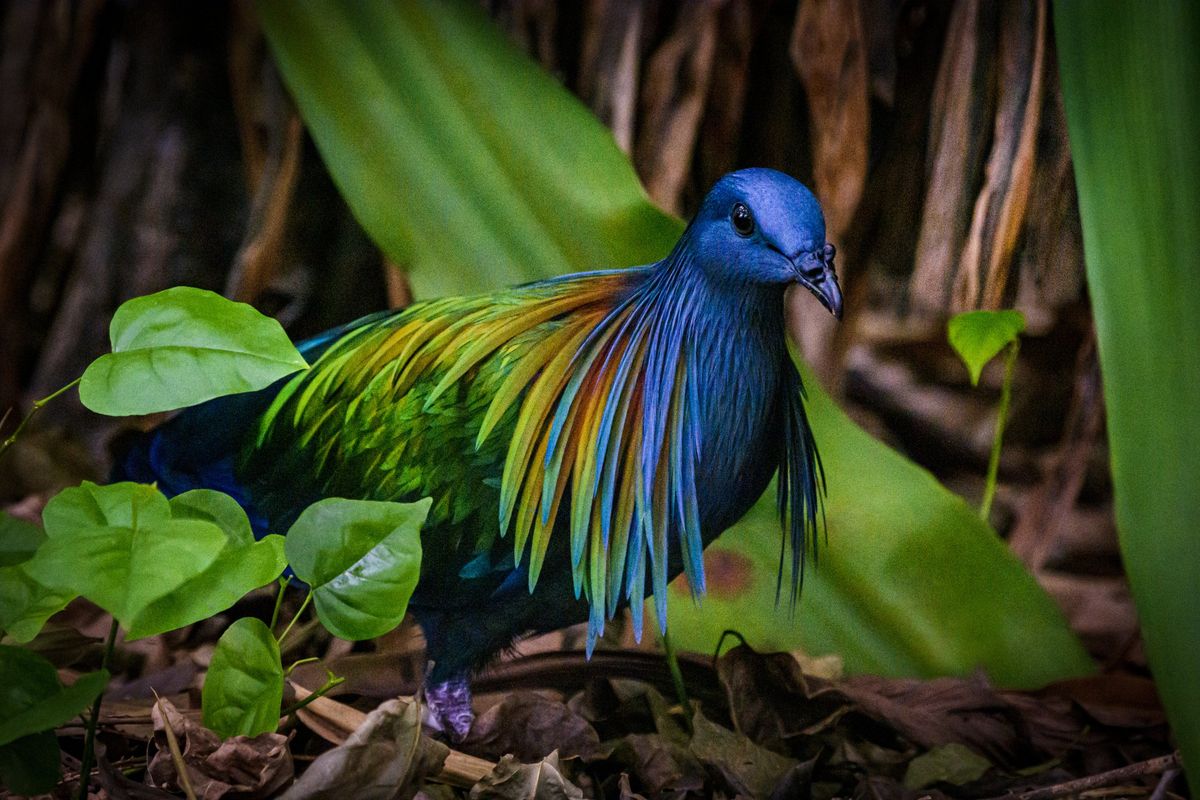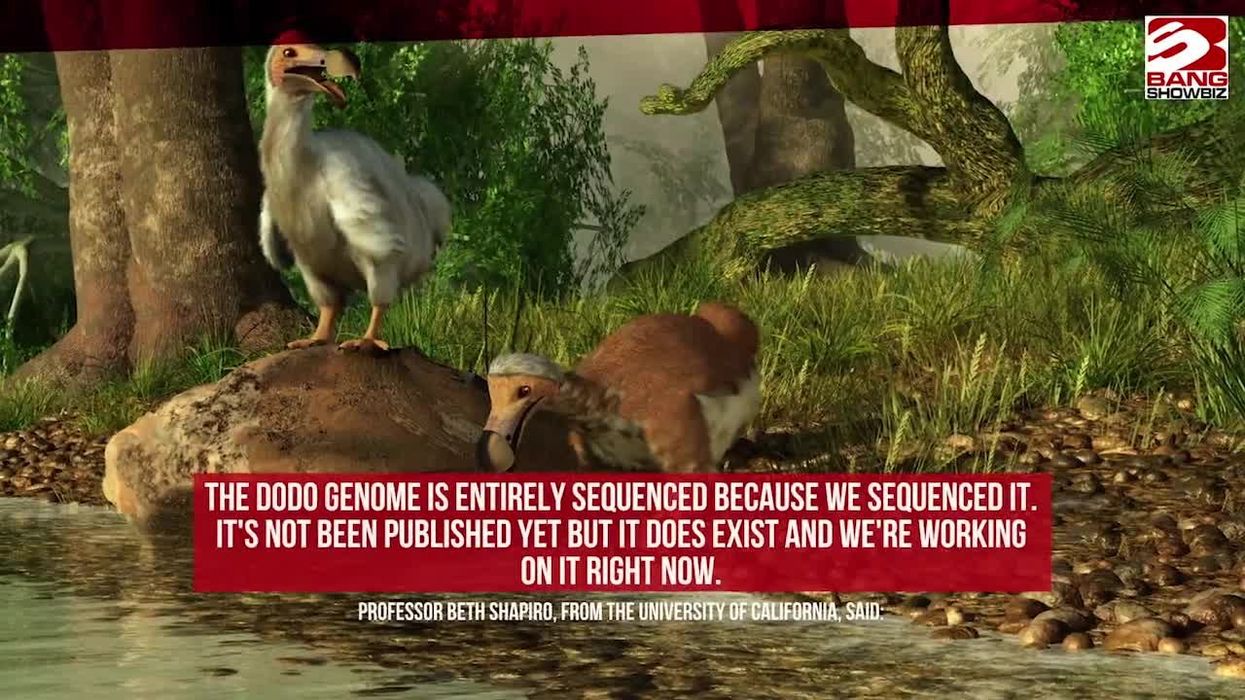Alex Daniel
Nov 27, 2023
Extinct Dodo bird could be brought back to life after scientific breakthrough …
Bang Showbiz - Bang Bizarre / VideoElephant
The dodo has long been a lesson in what happens when human deforestation and hunting hits the animal kingdom.
The legendary flightless bird was found by Dutch colonial soldiers on an island in the Indian Ocean in 1600. Less than 80 years later, it was extinct. Nice work, humans.
But now, a group of scientists hope we could one day be living with the dodo in our midst again, as they try to “de-extinct” it.
Conservationists in Mauritius have joined forces with Colossal Biosciences, a not-at-all-creepy-sounding genetic engineering company, to try to bring the bird back.
Dodos went extinct because they were easy targets. Not only did the colonial settlers think they were tasty – so did the predatory animals they brought along with them, including dogs, cats and others.
That’s why first, conservationists at Mauritian Wildlife Foundation will work to restore the dodo’s native habitats on the island, building a safe space for the birds away from animals that might eat them.
Then, the genetic engineers will try to rebuild the dodo’s entire set of genetic information, known as a genome, using its closest living relative, the Nicobar Pigeon, as a reference point.

Then, they’ll try to breed some real-life dodos using genetically modified chickens as surrogates. Those chickens just can’t catch a break, can they?
Matt James, Colossal’s chief animal officer, said: “Colossal’s de-extinction projects are only successful if the animals are rewilded and brought back to their natural habitat. We look forward to working with Mauritius to ensure this happens with the dodo.”
If it all sounds a little too much like humans are playing God, the genetic engineers are, to their credit, also trying to use science to stop other, still living, species from going extinct.
That includes the pink pigeon, a vulnerable bird that also comes from Mauritius. Just 500 pink pigeons are still left, and a lack of genetic diversity due to the low numbers means they’re now having trouble breeding.
So the scientists are using historical samples of the birds and gene-editing techniques to bring back some of that genetic diversity to the fast-dying population.
That way, we won’t have to bring the pink pigeon back from the dead too.
How to join the indy100's free WhatsApp channel
Sign up to our free indy100 weekly newsletter
Have your say in our news democracy. Click the upvote icon at the top of the page to help raise this article through the indy100 rankings.
Top 100
The Conversation (0)














